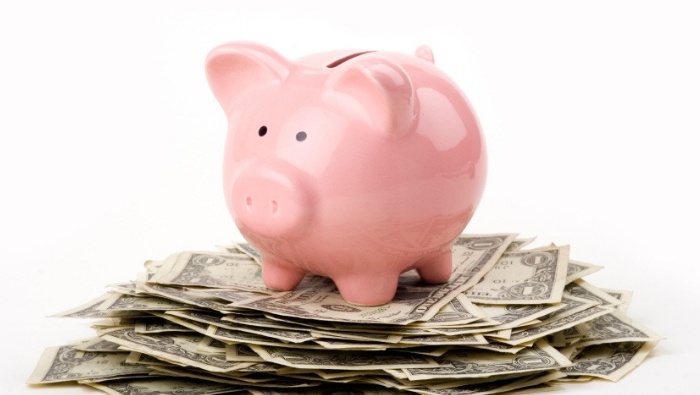6 Simple Habits That Make a Financial Difference
Good money habits have a way of accumulating and reinforcing each other while improving your financial condition over time. Anyone can develop these simple habits. And they are sure to have a significant impact on your finances.
by Andrea Norris-McKnight

Have you ever wondered why some people seem to make frugal living so simple and save money effortlessly while you struggle to trim the budget and save a few pennies, much less a few dollars?
Much of it comes down to habit.
By developing the following simple habits, you can keep some of your day-to-day costs in check with little thought or effort. Then, you can reap the savings from these simple habits that make a financial difference all year round.
1. Always Shop With a List
Whether going to a physical store or shopping online, always make a list and don’t buy anything that isn’t on your list. Sure, you’ll always come across some bargains when shopping that you didn’t plan for, but limit these non-list purchases to necessities.
The simple act of making a list means you have to take a few minutes to think about how you’re going to spend your money. It means spending a few minutes planning — planning what you need, what you’re going to buy, and what you’re going to spend.
A list can help you be more mindful of your spending, avoid impulse purchases and stick to a budget. And it can save you thousands of dollars over time.
Sign Up for Savings
Subscribe to get money-saving content by email that can help you stretch your dollars further.
Twice each week, you'll receive articles and tips that can help you free up and keep more of your hard-earned money, even on the tightest of budgets.
We respect your privacy. Unsubscribe at any time.
2. Pay Yourself First
One of the most financially beneficial habits you can develop is to save regularly. Even if you can only save $5 per week or every few weeks, build a habit of saving at regular intervals. Then, gradually increase the amount you save. That weekly $5 should eventually become $10, then $20, or whatever increments fit your budget.
Nowadays, it is easier than ever to pay yourself first. Most banks provide an online feature that allows you to schedule regular automatic transfers from checking into a savings account. Schedule your transfer to occur immediately after you get paid. While this might be more challenging for those who earn tips or commissions (have a variable income), anyone who receives a regular paycheck should have no excuse not to pay themselves first.
If you work for tips or commission, make a habit of saving a specific percentage each time you get paid. Even 1% will add up over time until you can save 2%, 5%, 10% or more every time you make a deposit.
By making saving a habit and gradually increasing the amount you save over time, you’ll find that saving money can be a relatively painless process.
3. Stay In Control of Home Energy Usage
Electricity is one of those necessary expenses that we all have, but some of us pay more for it than is necessary. Two habits can help you keep energy costs in check; these days, both can be automated.
First, make it easy to turn off energy phantoms. TVs, computers, DVD players and other electronics and appliances have become much more energy-efficient in the last number of years. However, most still use energy continually — all hours of the day — whether in use or not.
The use of power strips can make it easy to shut off these energy vampires with the quick flip of a switch.
For instance, you may have a DVD player, cable box or streaming device and a gaming system all plugged into one power strip. Get into the habit of turning the power strip off each night and back on as necessary. Or invest in a cheap outlet timer to turn everything off and on for you. Even turning off the power strip half of every day can save you quite a bit over time.
Also, get into the habit of adjusting your thermostat. According to Energy.gov, “You can save as much as 10% a year on heating and cooling by simply turning your thermostat back 7°-10°F for 8 hours a day from its normal setting.” This is another habit you can now automate by installing a programmable thermostat.
4. Buy in Bulk/Stockpile
Billionaire entrepreneur Mark Cuban has often said that there is no better investment than buying in bulk at a discount. By buying in bulk, or stockpiling as some call it, you can get the everyday things you need, such as paper goods, toiletries and food items, at a significant discount — sometimes as much as 50% or more.
If you haven’t yet mastered the art of stockpiling, here is a handy guide that can help.
5. Always Pay Off Your Credit Card Balance in Full
It is no secret how much credit card interest can cost you. Imagine the thousands of dollars you’ll save over your lifetime if you can pay off your card in full every single month. With the many rewards credit cards available, you can find a card that can save you money if you aren’t allowing those points to be offset by interest every month.
If you’re struggling to get out from under a steep amount of credit card debt, you might not be able to benefit from this tip right away. But, someday, you can if you stop adding to your debt burden and continue to focus on paying off your debt.
Get Help Paying Off Credit Card Debt
Use these guidelines to choose the best plan to pay off your credit card balances.
6. Track Your Spending
If you’ve gotten into debt without a clear picture of how it happened, you probably don’t have a budget or regularly track your spending. Or maybe you don’t have any credit card debt, but you never know where your money goes each month. Tracking your spending won’t necessarily keep you out of debt, but it will certainly allow you to see how you got there or where your money is going.
Put together a monthly budget and note every penny you spend. Even better, take a look at your budget before making any discretionary purchases. This simple task can often deter you from spending money that you can clearly see is outside your budget.
Tracking spending might feel tedious, but it can go a long way in helping you get control and stay in control of your finances. To make the task as easy as possible (and so you’ll stick with it long enough to form a habit), try using budgeting software to automate some of the tracking process.
Which Habit Will You Develop First?
Perhaps you are already in the habit of doing some of these things. Why not get in the habit of doing them all? These simple habits can make a financial difference of thousands of dollars over your lifetime.
Reviewed June 2024
Sign Up for Savings
Subscribe to get money-saving content by email that can help you stretch your dollars further.
Twice each week, you'll receive articles and tips that can help you free up and keep more of your hard-earned money, even on the tightest of budgets.
We respect your privacy. Unsubscribe at any time.
Popular Articles
On After50Finances.com
- 9 Things You Need to Do Before You Retire
- You Didn’t Save Enough for Retirement and You’re 55+
- When Empty Nesters Reorganize and Declutter Their Home
- Reinventing Your Career in Your 50s or 60s
- What Mature Homeowners Should Know about Reverse Mortgages
- 2 Reasons to Collect Social Security Benefits As Soon As Possible


